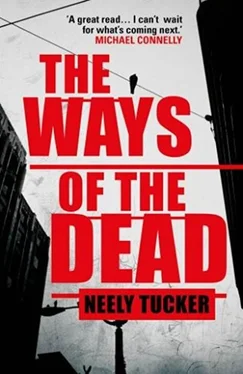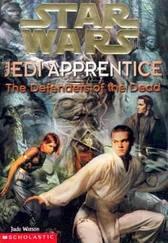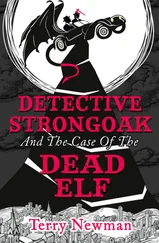The phone picked up. The baritone he’d heard last night.
“Hello? Mr. Williams? Sir, my name is Sully Carter, I’m a newspaper reporter, and I’m working on a story about missing persons in the District? Right around Princeton Place, in fact? I was trying to reach the family of Michelle Williams. Someone mentioned her name at a community meeting last night, and I was just following up to see if-”
“This is Michelle’s father. That was me. Why you calling? Has she been found?”
“No, not that I know of. I’m a reporter. I’m working on a story about missing young women. Michelle appears to be one of those. That’s why I was calling.”
Silence. It went on.
He looked at the phone and said into it, “To find out some more about her. I saw the flier at the police station, saw the report, and heard just a part of your question last night. It looks like she’s been gone about a week.”
The phone rustled. “Four. It’s been four weeks . They finally just now put out the flier, they got the date wrong to boot. What else is it you need to know, reporter man?” The tone wasn’t hostile. It was resigned, and Sully sensed an opening.
“Well, actually, a lot, Mr. Williams. The basics-the last time you saw her, places you might think she could have gone-but also something about who she is, what she likes to do, what her plans are.”
“ Were. What her plans were . If my baby’s been gone four weeks without talking to me, she’s dead. But I’m asking, what’s it to you?”
Sully let out a breath. “It’s… it’s partly my job, Mr. Williams. I’m not calling you in my spare time because I have an odd interest in missing young women. I’m at work. I’ve been doing this twenty years and I’m serious about it. There are a couple of other girls who are missing from around this neighborhood and-I’m not going to lie to you-they’ve turned up as homicide victims, or drug cases. I’m writing about them, and that research led me to Michelle’s name. I’d like to come see you, find out some more about your daughter, and, if it’s okay with you, put her picture in the paper.”
There was another raft of silence.
“Where are you,” the baritone said, “right now?”
“The McDonald’s on Georgia, just up from the intersection with Missouri.”
“You know where Warder is?”
“I do.”
“I’m at 3535. I got to be at work at four. You can come now, you hurry.”
***
The block was mostly row houses and the Williams place was like the rest: two stories with a basement, an awning over a concrete porch (his was painted gunship gray), four steps down to a grassy yard, a brick walkway to the street. A rusting chain-link fence lined the sidewalk. Two green city-issued trash cans sat just inside the fence, their plastic shells mottled and stained. Sully turned to look up the street toward Princeton Place as he opened the gate to walk into the yard. He could make out the stone edifice of Park View Elementary two blocks down. On the far side of that, in the baseball field at Park View Rec Center, was where Lana Escobar had been killed in the outfield grass. Noel Pittman had lived in the first building behind the center field fence. Rebekah Bolin, she’d been found on the east side of the Warder intersection. Michelle Williams could have walked by all of them in less than five minutes.
When he knocked, the bolt drew on the interior door, and it swung inward to reveal a tall, broad-shouldered man, a paunch beginning to strain the front of the T-shirt that was on under his unbuttoned Amtrak uniform.
“Sully Carter,” he said, opening the screen door and extending a hand.
“Curtis Williams,” he said, gripping Sully’s hand, backing up a step to let him inside. It was a narrow fit; Williams was a big man.
The hallway was dark, as was the front room off to the right. It was quiet save for the tick of a ceiling fan in the living room, its rotation slightly off, clicking on each circuit.
“The kitchen,” Williams said, gesturing down the hall. Sully went into the room, the yellow tile, dim light overhead. There was a small rectangular wooden table pushed against the wall and two chairs. Sully pulled one out and sat down, putting a card of his on the table as he did.
“I got maybe twenty minutes before I got to go,” Williams said.
“Yes, sir, listen-thanks for the time,” Sully said, looking him in the eye. He had maybe sixty seconds to gain his trust. People made their minds up fast, almost on instinct. It was about a feel, a perception, and that was based on physical observations and a sense of comfort. It was about sincerity and it couldn’t be taught or faked.
“You work at the Amtrak station, Mr. Williams, or you make the runs?”
“The runs, mostly. I do the ticketing, keep the books en route. Sometimes the café car when they don’t have anyone else.”
“You don’t sound like the new guy.”
Williams raised his eyebrows. “Twenty-three years,” sounding out each syllable. His voice was deep, but he spoke so softly Sully had to lean forward to catch it. He took the card Sully extended and looked at it while Sully went back over the story he was writing. Thirty or forty seconds into the explanation, Williams reached over into a stack of papers on the table, and pulled out a picture of Michelle. It was a school photograph. She had her hair pulled back, a bright smile, a deep blue T-shirt, and dangling earrings. Thin eyebrows, indicating they were plucked and managed. She was a little on the heavy side. She was twenty-four, her father said.
Sully smiled, looking at it.
“You got kids?” Williams asked.
Sully shook his head no. “It wasn’t good when I grew up. I got a sister who I haven’t seen in six, seven years. She lives out in Phoenix. Kids appear to be something my family doesn’t do well.”
Williams nodded. “I hear you. My wife took off when Michelle was three. It was just me and her. I got people, but they’re down in North Carolina. She’d go stay with my mother in the summers. I stopped taking overnights on the train for a long time back when the wife left, just up to New York and back, the same day. Michelle and I did okay. She went to school down there at Cardozo.”
Sully wrote this in his notebook and nodded. “What’s her birthday?”
“August 22, 1975.”
“Could you tell me about the day she disappeared?”
The man pulled out a chair, far enough from the table that his legs did not fit under it. He sprawled as much as sat. When he went from standing to sitting, his body posture went from dominant to defensive.
“Not really,” he said. “I was out on an overnight to New York. I had started back on those a few years ago. Last train up, first one back the next morning.” His voice had the same resigned effect that it had over the phone. “Now, see, I didn’t think it was unusual when she wasn’t home when I got back after my run. She liked to stay with one of her friends over the weekend. She was grown. And, ah, she had problems with the drugs, Mr. Carter. She’d be out to all hours. She’d get one job, lose it, and go back to getting high. So it wasn’t all that out of place for her to be gone a few days.”
“She’d been to rehab?”
“Several times. We’d fought about it. She’d been raised right. And then-I don’t know. High school, started running with the lowlifes. This neighborhood, I been here since I got out of the service, and that was just before Michelle was born. Older folks been here longer. And it just seems that a lot of our kids, they’re good, but they just wound up without any… any ambition.”
Sully leaned back in his chair, pulling up his pen from the notebook for a moment. “It’s hard, with kids.”
Читать дальше












